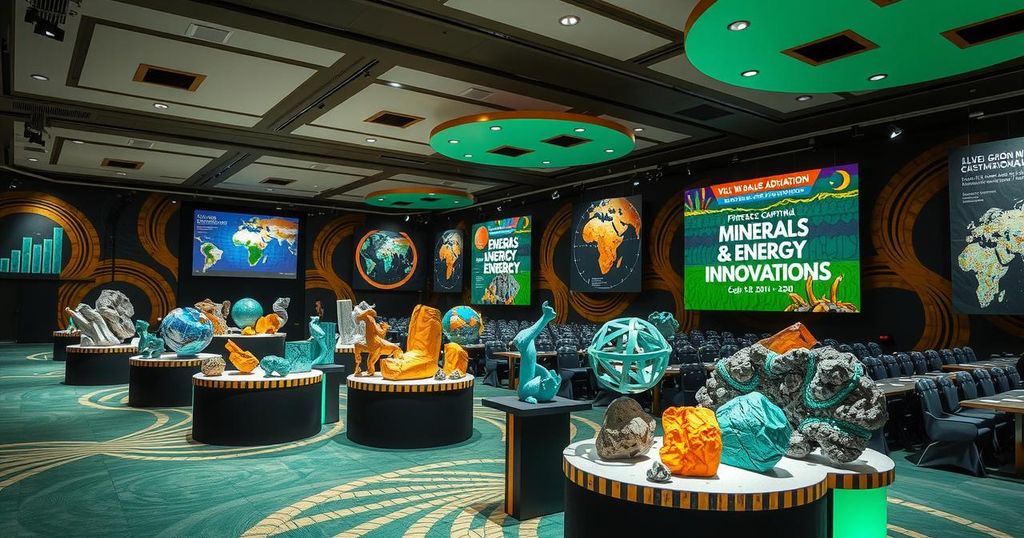Alake Urges Value Addition as FG Issues 867 Mining Licences

- Dele Alake urges African nations to stop raw mineral exports.
- Nigeria has issued 867 mining licenses, generating N6.95bn revenue.
- The mining sector revenues surged to N38bn due to reforms.
- Investments in processing-related initiatives reached over $800m in 2023.
- Nigeria is establishing lithium-ion battery manufacturing facilities.
- The summit aims to make value addition a collective goal for Africa.
Government Licensing and Economic Impact The recent statistics shared by Alake highlight significant progress in Nigeria’s mining sector, as the Mining Cadastre Office processed over 10,000 applications and approved 867 mining titles within three months. This breakdown includes 512 exploration licences, 295 small-scale mining leases, and so on. The Minister attributed the sharp increase in sector revenues from N6 billion to a record N38 billion last year to stricter regulations, a crackdown on illegal mining, and policies mandating local processing of minerals prior to export. He insisted that the country needed to use its abundant mineral wealth to support industrialisation and sustainable growth, rather than remaining a net exporter of raw materials. Alake also pointed to the considerable interest from investors, noting over $800 million in processing-related investments attracted only in 2023. This is a clear sign of growing confidence in Nigeria’s revamped governance, which, according to the Minister, is driven by President Bola Tinubu’s Renewed Hope Agenda focusing on boosting local content and economic diversification. The ambitious efforts to reform the sector encompass creating a more robust regulatory environment and enhancing domestic processing capabilities to maximise the value derived from Africa’s rich mineral resources.
Urging Value Addition in Africa’s Mining Sector Dele Alake, the Minister of Solid Minerals Development, recently called on African nations to assert their control over natural resources. Specifically, he emphasised the need to stop exporting raw minerals and instead focus on local processing and industrialisation. He believes that continued exportation of unprocessed minerals denies the continent crucial economic advantages, like job creation and sustainable development. This statement came at the opening of the 4th African Natural Resources and Energy Investment Summit in Abuja, Nigeria’s capital, where he also revealed that the Federal Government has issued 867 mining licenses, generating around N6.95 billion in revenue in just one quarter of 2025 due to ongoing reforms in the mining sector.
Power Sector Reforms and Future Strategies During the AFNIS 2025 summit, Power Minister Adebayo Adelabu outlined current initiatives aiming for electricity decentralisation, digitisation, and decarbonisation. He mentioned a rising electricity demand in Nigeria due to its large population, advocating for a clear regulatory framework alongside strong investment and local participation in the electricity value chain. Additionally, he pointed out the Electricity Act of 2023 brought considerable changes by permitting eleven states to gain control over their regional markets, positively affecting investment and competition. Adelabu highlighted the government’s efforts have yielded results, as evidenced by revenue increasing from N1 trillion in 2023 to N1.7 trillion in 2024, mainly due to cost-reflective tariff adjustments. Ongoing reforms in the power sector also include operationalising the Independent System Operator to promote efficiency. Several programs, like the Energising Education Programme, and grants for the Africa Mini-Grid Programme, indicate Nigeria’s push towards clean energy solutions. Notably, the government remains committed to achieving universal energy access and aims for net-zero emissions by 2060, showcasing a determination to secure Nigeria’s energy future.
Nigeria’s Efforts Towards Green Energy Transition In a significant move towards energy transition, Alake announced Nigeria’s plan to set up a lithium-ion battery manufacturing plant along with electric vehicle assembly plants. He expressed optimism that Nigeria is making real strides in building the necessary infrastructure to foster green energy development. Referring to initiatives like the recently established African Mineral and Energy Resources Classification and Management System, he shared that a pan-African code has been developed to bolster investors’ trust. The launched frameworks aim to facilitate better reporting and evaluation of resources, promoting comparative asset evaluations across the continent. The former statement echoed during the summit was by Kenya’s Cabinet Secretary, Hassan Joho, who praised the collective progress African nations have identified in the sector. He underscored the need for cooperative efforts in creating jobs and wealth for the continent. Additionally, Faruk Yusuf Yabo, the Permanent Secretary of the Solid Minerals Development Ministry, reiterated ongoing commitment to driving the implementation of the Renewed Hope Agenda, focusing on environmentally and socially responsible partnerships. Further emphasizing this point, the Nigerian government has declared a commitment to prioritise local manufacturers in addressing the electricity needs, stressing how local content will be critical to enhancing economic growth and energy security.
In conclusion, the push for value addition in the mining sector is an essential strategy for Nigeria and other African countries to harness their mineral wealth more effectively. The government’s reforms, which include local processing requirements and aggressive licensing activities, are already resulting in increased sector revenue and attracting significant investment. Furthermore, the focus on energy transition through green technologies also demonstrates a multi-faceted approach to utilising natural resources for sustainable development and job creation.




